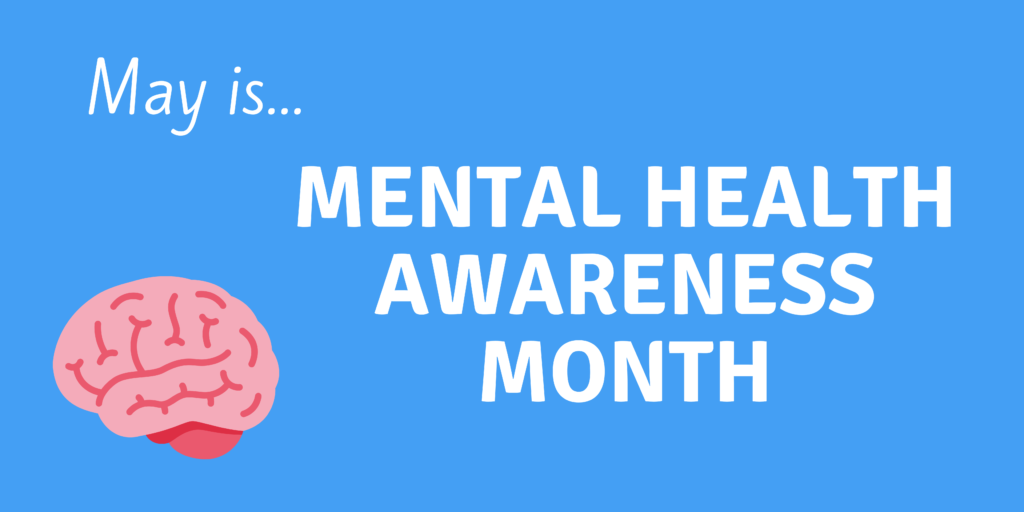Mental Health Awareness Month: Resource guide

May is Mental Health Awareness Month, and Thursday, May 19 is the second annual Mental Health Action Day – here are some reasons why mental health matters, and resources for supporting people who struggle with mental illness.
Did you know that at least one in five U.S. adults experience mental illness each year? The ripple effects of mental illness impact individuals, families, communities, and the world at large. Mental illness can increase the risk of chronic diseases like diabetes and cancer, and is a leading cause of disability. Mental illness is found disproportionately in incarcerated people and those experiencing homelessness. It also disproportionately affects the BIPOC and LGBTQ+ community.
In 2020, the COVID-19 pandemic had an especially significant impact on global mental health. Even as telehealth options become more accessible, many struggle to get the necessary treatment they need to manage mental illness. That’s why now more than ever, mental health awareness and action are important.
Mental Health Resources
The National Alliance on Mental Illness (NAMI)
NAMI is the nation’s largest grassroots mental health organization dedicated to building better lives for the millions of Americans affected by mental illness. They publish regular blog content related to mental health awareness, curate a Youtube channel with personal stories and strategies for asking for help, and even organize regional and college campus support groups for people struggling with mental illness. Find your local NAMI here.
OMM was founded in 2012 with the vision of preventing teen suicide, a leading cause of death in young people. This page contains resources for recognizing the signs of suicide, general mental health tools for everyone, and even dedicated resource lists for specific demographic groups. OMM emphasizes the power of peer-to-peer influence among adolescents, and promotes social connectedness, help-seeking behavior, and positive coping skills – all of which have been proven to decrease the risk of suicide.
The Jed Foundation is a leading nonprofit dedicated to improving mental health in young adults. Their programs and resources support millions of high school and college students. The Jed Foundation’s Mental Health Resource Center contains a comprehensive search engine for managing common mental health struggles. It also supports taking action to manage your own mental health or help someone you know who might be exhibiting warning signs of serious mental illness. Whether you need help for yourself, or want to help others, the Jed Foundation is there to point you in the right direction.
Having trouble finding or affording an available therapist? Read Greatist.com’s list of apps, websites, and call centers that might be able to help.
If you are in crisis, you can call the National Suicide Prevention Lifeline 24 hours a day, seven days a week, at 800-273-8255 (TALK).
You can also get help by texting “HEAL” to the Crisis Text Line at 741741 or contacting Lifeline Crisis Chat.
If you’re under 21, you can call Teen Link at 866-TEENLINK (866-833-6546) and ask to talk to a peer. The phone line is open 6 p.m.– 10 p.m. and chat is available 6 p.m. – 9:30 p.m. daily.